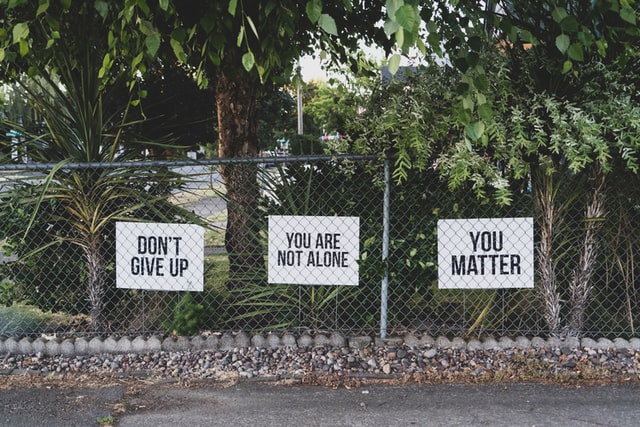One in five people struggles with mental health issues daily. People cope with their problems through various mechanisms. However, these mechanisms sometimes ignore the issue or merely treat the symptoms rather than the main cause, which can eventually make the problem worse. Mental health awareness has increased in the last decade as it is vital to improving society’s overall well-being.
People have become more accepting of discussing their mental health now that the social stigma surrounding it is dying down, and they don’t feel as vulnerable opening up to professionals, family, or friends as they might have once done. If you are looking for ways to fight mental health issues, here are some tips that will help you along the way.
Being Physically Active
Improving your mental wellbeing starts with being physically active. You don’t have to spend hours in the gym or exercise intensely to take care of your physical health, however. Find physical activities that you enjoy such as cycling, swimming, or walking, and keep doing them regularly as these activities raise your self-esteem, change your mood for the better, and help you set goals and achievements for yourself. You don’t have to spend money to be physically active either, so don’t stress yourself and explore different activities to find what you enjoy the most.
Talking About Your Feelings
It may sound obvious, but talking about feelings feels so difficult and awkward for everyone. Some people consider sharing their feelings as a sign of weakness, but that is far from the truth. Talking to someone about how you feel or relaying the intrusive thoughts that bother you is a way to improve your mental health; it will open you up to a plethora of support when you realize you’re not alone. You should talk to someone that you trust, whether that is a family member, a friend, a professional mental health care provider, or online therapy. No matter how silly you think the feeling or thought is, talking about it is the first step to learning healthy coping mechanisms to overcome thoughts and fears that don’t serve you.
Seeking Help
Some mental health issues are overwhelming and can’t be handled alone, and it is essential to seek help to overcome or deal with these problems. While friends and family are excellent at giving support to ensure you feel loved, they are not equipped with the right knowledge and expertise to take the right approach. Scheduling an appointment with a psychiatrist can help you learn more about yourself. Here in Southern California, finding a reliable and quality mental health residence is more realistic than one might think, regardless of finances or health concerns. You can find affordable and reliable care around the clock. This way you can ascertain that you’ll receive the right amount of care and treatment. Joining local support groups is another great help to show you how others are coping with the same problems. If you feel overwhelmed or exhausted to the point you can no longer deal with your mental health problems on your own, seek assistance; you don’t have to endure this alone.

Being Nice To Yourself
It is extremely easy to judge, criticize, and be hard on ourselves, especially when we are feeling down. Being hard on yourself intensifies stress and anxiety and deteriorates your mental health. It is difficult to be nice to yourself when your mental health is suffering. That’s why you should learn how to be compassionate to yourself. When you’re feeling down, it can be hard to compliment or congratulate yourself for anything. In times like this, try to be patient with yourself, and understand that a little goes a long way. Doing something small that puts a smile on your face is a big step forward.
Doing Mental Health Exercises
If you think it’ll be overwhelming to share your feelings or seek help, you can start small by doing some simple mental health exercises. Small steps have a huge positive effect in the long run as long as you are persistent. Meditation is a great exercise that will improve your mental health over time by doing practices like slow breathing. Writing your feelings and thoughts in a journal takes the stress of them off your mind even if for a short while and will help you feel better. Another good mental health exercise is stretching, which can be done any time of the day, anywhere, and any number of times. Laughing, dancing, and listening to music can boost your mental health considerably and improve your mood. Pick a couple of mental health exercises and schedule them, but don’t overdo it or push yourself to do what you’re not in the mood for and stress yourself even more.
Mental health is an essential aspect of your overall health and it can negatively affect your body in the long run. Opening up and allowing feelings of vulnerability are difficult tasks that most people don’t know how to do. Learning how to cope with your mental health issues will promote a more sustainable and healthy lifestyle as you work on improving different aspects of your life. Don’t be harsh on yourself; we all make mistakes, so be compassionate and patient with yourself. If you feel like nothing has worked for you, so far, don’t fret! It is never late to seek professional help to improve the quality of your life.



































